Hanleygp.co.uk

Looking after diabetes
A guide for patients
A Guide to your Diabetes
Management During Ramadan
A Guide to Your Diabetes Management During Ramadan
Introduction
In the UK there are 2.9 million people
diagnosed with diabetes (Diabetes
UK 2012). Many of these people are
Muslim and will plan to fast during
Ramadan.
If you are thinking of fasting for Ramadan then you might need to visit your Diabetes Team before Ramadan, for advice on how to manage your diabetes at this time. This might mean booking an appointment at least 2 months before the start of Ramadan.
It is important to discuss any medication changes before you start fasting. If changes are not made you may be at risk of "hypoglycaemia" or ‘hypos' (where your blood glucose levels fall to less than 4.0mmol/l).
You could also have high blood glucose levels during this time, which could lead to health problems in the short and long term.
This booklet has been developed to give you advice about how to manage your diabetes during fasting. Further advice can be sought from your Diabetes Team.

Ramadan is the 9th month in the Islamic lunar calendar where daily fasting (not eating or drinking from dawn until dusk) is compulsory for all healthy Muslims every year. Ramadan lasts for 29-30 days each year depending on the sighting of the moon.
The lunar calendar is 10 days shorter every year so from now on so Ramadan will fall in the summer months and the hours of fasting each day will be much longer (19+ hours).
Eid-ul-Fitr is celebrated when the new moon is sighted after the fasting month.
For Muslims fasting is a time to go without food, liquids, tobacco, sexual activity and medication (including oral, inhaler and injected medications) between the hours of dawn until sunset. It's also a time to adopt a healthier lifestyle by observing self-control and making dietary changes.
Healthy Muslims will fast whilst continuing with their day-to-day routine and will perform extra prayers, good deeds and spend more time with family and friends. It's a time for spiritual reflection, prayers and purification of the body, mind and soul.
A Guide to Your Diabetes Management During Ramadan
Does everyone have to fast?
Not everybody needs to fast and Islam states that there are certain groups of people who are exempt from fasting. Those who do not have to fast during Ramadan include:
• Children (under the age of puberty)
• Older people
• The sick
• Those with learning difficulties
• Those with mental health problems
• Anyone who would be putting their health at
serious risk by fasting (i.e. people with uncontrolled diabetes, have complications of their diabetes such as damage to eyes, kidney or nerves, chronic kidney disease and cardiovascular disease)
Those people who are unable to fast such as:
• Pregnant and nursing mothers
• Menstruating women
• Those travelling more than 57.5 miles each
day where fasting is difficult.
can make up the fast at a later date. (Qadha)
Those people who are unable to fast at all can:
• Provide food to others
• Offer donations to people less fortunate (give Fidya)
speak to your local Mosque leader for advice.
"If a fasting person becomes ill, they can end the fast
during the day by eating or drinking"
What happens to your body during fasting?
your body enters
into a fasting state
around 8 hours after
4) Later in the fast
your body will break
down fat as a source
2) Your body will
initially use stored
sources of glucose
which can increase the
risk of hypoglycaemia
on some medications
and / or insulin.
3) This may cause
some difficulties in
maintaining your blood
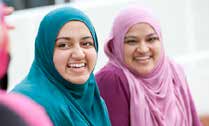
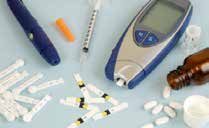
A Guide to Your Diabetes Management During Ramadan
Being safe whilst fasting
Many Muslim people will choose
to fast during Ramadan and it is
very important that you speak
to your diabetes healthcare
professional before this time. It is
especially important if you are on
certain tablets and / or insulin.
Your diabetes nurse or doctor will be able to make recommendations regarding your treatment to keep you safe.
To keep yourself safe whilst fasting you should test your blood glucose levels and keep in touch with your Diabetes Team as needed.
Blood Glucose Testing
Blood glucose testing will not break
your fast, however be aware that
you will have to end your fast and
eat if your blood glucose levels fall
below 4.0mmol/l. See page 14 for
how to treat a blood glucose reading
of less than 4.0mmol/l.
In the following instances we advise people with diabetes not to fast during Ramadan for their own safety:
• Type 1 or Type 2 on a mixed insulin regime e.g. Novomix 30,
• Type 1 or Type 2 struggling with frequent hypoglycaemia.
• Pregnancy
• During illness
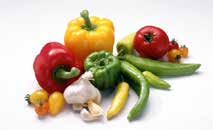
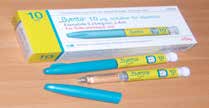
Is your diabetes
controlled by diet only?
If your diabetes is managed by diet
only you can fast without the risk of
hypoglycaemia. It may be beneficial
for you to follow the dietary advice
on page 12.
Is your diabetes controlled by diet and tablets
and/or Byetta (Exenatide) / Bydureon (Exenatide
extended release) or Victoza (Liraglutide)?
If you belong to this group you can fast but you may be at risk of hypoglycaemia or a ‘hypo'. Please speak to your diabetes team for tailored advice.
If you are on any of the tablets in the table below
• Gliclazide
• Glipizide
• Glimepiride
You may be at risk of hypoglycaemia or a ‘hypo'. Please speak to your Diabetes Team for tailored advice.
"Remember blood glucose testing will not break
your fast". Test your blood glucose 2-4 hours after
you begin fasting."
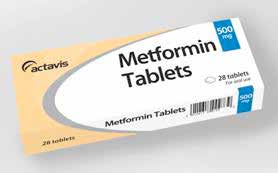

A Guide to Your Diabetes Management During Ramadan
Is your diabetes controlled by diet and Metformin?
If you are on Metformin alone
for your diabetes you can use the
following management plan:
Changes to your treatment
One daily dose of
Two daily doses of
Metformin in the morning
Metformin (one in the
morning and one in the
If you are taking only one
dose of oral tablets in the morning, then continue
If you are on twice daily
with the same dose during
doses, continue to take
Ramadan BUT the tablet
these two tablets during
should now be taken at the
Ramadan, but you may
time of breaking your fast
need to change the timing
(Iftari) in the evening with
your main meal.
"You will need to
adjust the times
and dose of your
medication during
Three daily doses of
Metformin (morning,
• Prior to ending your fast at
afternoon and evening)
dawn (Sehri) reduce your dose to half your normal
If you are taking tablets
morning dose.
three times a day then you are advised to
• At the time of breaking
first consult with your
your fast (Iftari) at sunset
diabetes team, as the
take your normal evening
dose and the timings of
your tablets will have to be adjusted to suit you.
"If you are taking any other tablets to manage
your blood glucose levels please speak to
your Diabetes Team"
A Guide to Your Diabetes Management During Ramadan
Insulin Therapy
You can fast with both Type 1
and Type 2 Diabetes but it will
depend on your insulin regime.
If you chose to fast it is important that you consider the following:
• You should never stop your insulin particularly people with
Type 1 diabetes as this could be life threatening.
• Your insulin regimen will need to be altered.
• Blood glucose monitoring is paramount and if you have a
‘hypo' you must end your fast by treating the ‘hypo'.
• If you are on a basal bolus insulin regimen (e.g. background
insulin either once or twice a day and quick acting insulin with meals) you may be required to make alterations to your insulin. For example your dose of background long acting and the timing and amount of quick acting insulin in relation to meals may need to be altered.
• If you have Type 2 Diabetes on tablets and night time
insulin, continue to take your night time insulin but you may need to alter your tablets according to the type of tablets and when you eat.
• If you are on a pre-mixed insulin regimen e.g. Novomix 30,
Humulin M3, Humalog Mix 25 or Humalog Mix 50, you will need to seek advice on how to alter doses and timings of your insulin. You may need to change to a different insulin regimen during Ramadan.
Food choices for Ramadan
During Ramadan your eating pattern may be very different
to normal. You should still aim to eat a balanced diet
and include fooods from all the food groups.
At dawn (Sehri)
Meals should be formed around starchy carbohydrates such as:
• Rice
• Chapattis
• Potatoes
• Bread
• Cereals
Starchy carbohydrates are broken down into glucose after eating and therefore have a direct effect on your blood glucose levels. Starchy carbohydrates are a good source of energy and should be included in the diet, however, to prevent high blood glucose levels after eating try to avoid large portions of these foods.
Try eating whole grain sources of starchy carbohydrates, lentils and/or oats as these foods release energy slowly which can help to maintain your blood glucose levels and make you feel less hungry.
Try drinking sugar free drinks to quench thirst instead of drinking tea or coffee at Sehri as caffeine stimulates faster water loss through urination. Try to avoid sweet or salted lassi, mango pulp, tropical juices and full sugar fizzy drinks.
A Guide to Your Diabetes Management During Ramadan
Iftari - Ending the Fast
At sunset the fast is ended known as IFTARI. Traditionally a date or
water is the first thing to be eaten/drank to open the fast after which
prayers are offered.
Dates are a good source of energy
and fibre. Having a sensible portion
will prevent high blood glucose levels.
A sensible portion is 1-2 dates.
Constipation: Drink plenty of water when ending your fast and eat fibre rich foods including whole grain carbohydrates, fruits and vegetables with skins.
The main meal is eaten afterwards. If you are following a balanced diet then normal weight should be maintained. If you are overweight you may find that you lose some weight if you are reducing your portions and being more active. In particular, reducing portions of fatty (e.g. samosas, pakoras, chevda, oil) and sugary (e.g. burfi, jalebi) foods will help you achieve this.
(visit www.leicestershirediabetes.org.uk Healthier Asian Recipes sections for ideas)
Exercise
Praying 5 times a day and the
additional special night prayers
(Taraweeh, which can last anything
from 1-2 hours each night) is physical
activity. It is advised that you test
before and after prayers. It may be
necessary for you to take ‘hypo'
treatment or eat a light snack e.g. fruit
You can determine whether this is
necessary by looking at your results.
Smoking
Although smoking is forbidden in Islam, we know many people
smoke. Therefore Ramadan is a good time to stop smoking for
life. If you would like more information on the help and support
available to stop smoking, speak to your Diabetes Team.
Use Ramadan as an
opportunity to quit
smoking for good
(visit www.leicestershirediabetes.org.uk Healthier Asian Recipes sections for ideas)
A Guide to Your Diabetes Management During Ramadan
What is Hypoglycaemia or a ‘hypo'?
Even after taking all precautions, a person with diabetes may
experience a ‘hypo' during the month of Ramadan. A ‘hypo' is a
blood glucose level of less than 4.0mmol/l.
Often when people have a ‘hypo' they may experience the following symptoms:
• Sweating
• Hunger
• Feeling of anxiety
• Going pale
• Trembling and shaking
• Heart beating quickly
• Tingling of the lips
Symptoms vary from person to person, most people feel different very quickly but some people have no symptoms. if you have symptoms you should treat the ‘hypo' immediately and the fast must be ended.
• 100-120ml Lucozade Original
• 2 tubes Glucogel
• 200- 300ml Lucozade Sport
• 5 - 6 Lucozade / Dextrose
• 150- 200ml Orange juice
• 150- 200ml Cola (non-diet variety)
You should treat the ‘hypo' appropriately with one of the following:If you do not feel better and your blood glucose level is still less than 4.0 mmol/l after 5-10 minutes, repeat one of these treatments.
After you have treated the ‘hypo' you must follow this with eating some slow release carbohydrate or a starchy snack e.g.
• 1 piece of fruit
• 1 slice of bread
• 2 plain biscuits
• 1 small chapatti
It is important to consider what may have caused you to go ‘hypo' and to contact your Diabetes Team for a medication review.
Useful Points to remember
Not everybody needs to fast
and Islam states that anyone
who would be putting
their health at serious risk
by fasting are exempt i.e.
people with diabetes.
Contact your Diabetes
Team before Ramadan
for advice on how to
manage your diabetes at
A ‘hypo' is a blood
glucose level of less
than 4mmol/l and must
be treated by ending
To keep yourself safe whilst
fasting you need to test your
blood glucose regularly.
Acknowledgements: This publication was reviewed by The Leicestershire Diabetes Research Group (The LDFG)
A Guide to Your Diabetes Management During Ramadan
For more information about Diabetes and Fasting
Contact us
The Diabetes Specialist Nurse Team
Department of Diabetes
Diabetes Care Unit
and Endocrinology
Leicester General
Victoria Building Level 2
Leicester Royal Infirmary
Leicester LE1 5WW
Leicester LE5 4PW
T: (0116) 258 5545
T: (0116) 258 8249
The Diabetes Specialist Dietitian Team
Diabetes Care Unit
Leicester General Hospital
Gwendolen Road
Leicester LE5 4PW
T: (0116) 258 4881
Designed by Shehnaz Jamal UHL 08/2012
Source: https://www.hanleygp.co.uk/wp-content/uploads/2015/02/diabetes_guide-for-pt-management_during_ramadan_Aug-20131.pdf
DIRECTORATE GENERAL FOR INTERNAL POLICIES POLICY DEPARTMENT C: CITIZENS' RIGHTS AND CIVIL LIBERTIES, JUSTICE AND HOME AFFAIRS Fit for purpose? The Facilitation Directive and the criminalisation of humanitarian assistance to irregular migrants Abstract This study was commissioned by the European Parliament's Policy Department for Citizens' Rights and Constitutional Affairs at the request of the LIBE Committee. With renewed efforts to counter people smuggling in the context of an unprecedented influx of migrants and refugees into the EU, it assesses existing EU legislation in the area – the 2002 Facilitators' Package – and how it deals with those providing humanitarian assistance to irregular migrants. The study maps EU legislation against the international legal framework and explores the effects – both direct and indirect – of the law and policy practice in selected Member States. It finds significant inconsistencies, divergences and grey areas, such that humanitarian actors are often deterred from providing assistance. The study calls for a review of the legislative framework, greater legal certainty and improved data collection on the effects of the legislation.
Shohei Juku Aikido Canada September, 2005. Number 9 Continuing On With Renewed Energy The short summer went by so quickly. How was everyone's summer? Did you all enjoy plenty of sunshine? The weather isbeginning to show a touch of autumn as we see the leaves around us changing. Autumn. In this season, there is a Japanese song that I always think about and often find myself singing.















